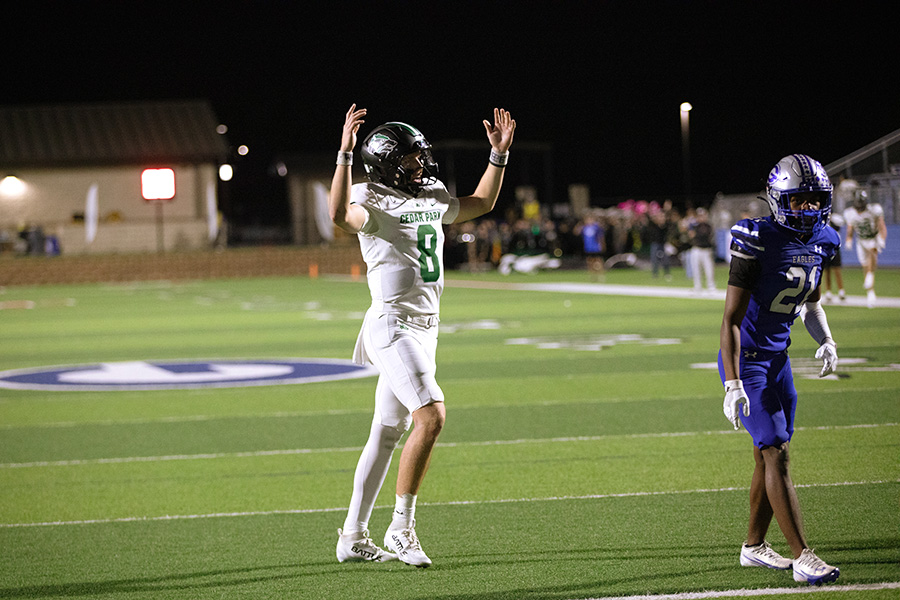The Gender Sexuality Alliance, also known as GSA, is a club where students gather to learn about gender identities, discuss current events and build community. The club is among one of the organizations most impacted by a new Texas law aimed at supporting parental rights. With GSA no longer allowed as an official club, students who once found support and connection through the group now must search elsewhere.
The change stems from Senate Bill 12 (SB 12), which took effect Sept.1, 2025, and applies to the 2025-26 school year. The law bans student clubs tied to gender and sexuality, adds limits on diversity, equity and inclusion practices, and requires parental consent for all activity-related matters in public schools.
“It hit me very hard at first when I found out about GSA being banned,” former GSA President Helena Friedman said. “I obviously still have those friends I made, but it’s not the same without the club, and I feel especially bad for the freshmen who don’t get to have that community of people like them. It just sucks to think about.”
GSA’s club meetings would start with a slideshow talking about different gender identities that are less recognized and news going on in the world related to LGBT media. For the rest of the time, the members would hang out or have some kind of craft to do.
“I was greatly impacted by GSA from the support and the friends I gained from it,” Friedman said. “Being able to meet people who are like you was amazing, and I’m proud to have been the president.”
Clubs and organizations still offered on campus are not immune to the impacts of the law. To comply with the parental consent requirement, the Texas Education Agency (TEA) has provided each district with the Parental Rights and Options form, allowing parents to withhold consent or exempt their child from certain clubs and organizations. Students will now have limited authority to direct their own interests, and their parents’ decisions will be upheld.
“I feel like consent for that is unnecessary, because I have divorced parents, so it could be that one parent agrees with a club and the other one doesn’t,” sophomore Lana Johnson said. “It makes things more complicated, especially since I’m involved in multiple clubs.”
Teachers who sponsor clubs are now obligated to take attendance of those who have permission to participate and to have proof that these Parental Rights forms have been completed.
“It’s just a lot more work on the students’ behalf and a lot more work on the sponsors and leaders to make sure that every kid has permission to come,” Fellowship of Christian Students sponsor Cami Jenschke said. “It’s less inviting to students because in the past we could just grab kids out in the hallway and have them join us, but now we can’t do that anymore.”
The Senate bill was authored by state Senator Brandon Creighton. In response to critics of the bill, Creighton said the bill aims to ensure parents are the primary decision makers in their child’s public school education and that parents must be empowered to have an even greater role in their children’s school life.
“Parental rights in education are God given and Texas protected,” Senator Creighton said. “The bill is intended to ensure parents are informed and involved in their child’s education.”
The bill has sparked mixed reactions among parents and educators regarding how much oversight families should have over student activities.
“As a parent myself, I appreciate the fact that they want parents to be aware of what their students are doing,” Jenschke said. “I think it does create a barrier to some clubs, and I think it’s hard when kids have interests that are different from their parents.”
The American Civil Liberties Union (ACLU) and other groups filed a lawsuit in August challenging the constitutionality of SB 12, arguing that the law violates students’ rights of free expression and equality. Furthermore, there are surveys and polls that students are participating in that are not associated with the school districts.
“Senate Bill 12 is a blatant attempt to erase students’ identities and silence the stories that make Texas strong,” ACLU’s senior staff attorney Brian Klosterboer said in a statement. “Every student- no matter their race, gender, or background- deserves to feel seen, safe, and supported in school.”
Despite the changes, surviving clubs have gradually adapted, and students have adjusted to the new rules, though some, like Johnson, remain frustrated with the process.
“They’ve mentioned the new policies in every club meeting I’ve been to,” Johnson said. “I think every student should have the right to be able to join whatever club they like without having to sign a consent form or put up with getting their club banned.”






![Senior Jett Mckinney stores all the clothes in his own room, with half of it stored in his closet along with his personal clothes, and the rest taking up space in his room.
“There’s been times [when] there’s so much clothing stored here and it gets overwhelming, so I end up having to sleep somewhere else in the house,” Mckinney said.](https://cphswolfpack.com/wp-content/uploads/2025/11/DSC_0951-1200x800.jpg)



![Broadcast, yearbook and newspaper combined for 66 Interscholastic League Press Conference awards this year. Yearbook won 43, newspaper won 14 and broadcast took home nine. “I think [the ILPC awards] are a great way to give the kids some acknowledgement for all of their hard work,” newspaper and yearbook adviser Paige Hert said. “They typically spend the year covering everyone else’s big moments, so it’s really cool for them to be celebrated so many times and in so many different ways.”](https://cphswolfpack.com/wp-content/uploads/2025/05/edited-ILPC.jpg)




![Looking down at his racket, junior Hasun Nguyen hits the green tennis ball. Hasun has played tennis since he was 9 years old, and he is on the varsity team. "I feel like it’s not really appreciated in America as much, but [tennis] is a really competitive and mentally challenging sport,” Nguyen said. “I’m really level-headed and can keep my cool during a match, and that helps me play a bit better under pressure.” Photo by Kyra Cox](https://cphswolfpack.com/wp-content/uploads/2025/09/hasun.jpg)

![Bringing her arm over her head and taking a quick breath, junior Lauren Lucas swims the final laps of the 500 freestyle at the regionals swimming competition on date. Lucas broke the school’s 18-year-old record for the 500 freestyle at regionals and again at state with a time of 4:58.63. “I’d had my eye on that 500 record since my freshman year, so I was really excited to see if I could get it at regionals or districts,” Lucas said. “ State is always a really fun experience and medaling for the first time was really great. It was a very very tight race, [so] I was a bit surprised [that I medaled]. [There were] a lot of fast girls at the meet in general, [and] it was like a dogfight back and forth, back and forth.” Photo by Kaydence Wilkinson](https://cphswolfpack.com/wp-content/uploads/2025/03/Kaydence-2.7-23-edit-2.jpg)


![As her hair blows in the wind, senior Brianna Grandow runs the varsity girls 5K at the cross country district meet last Thursday. Grandow finished fourth in the event and led the varsity girls to regionals with a third place placement as a team. “I’m very excited [to go to regionals],” Grandow said. “I’m excited to race in Corpus Christi, and we get to go to the beach, so that’s really awesome.” Photo by Addison Bruce](https://cphswolfpack.com/wp-content/uploads/2025/10/brianna.jpg)















